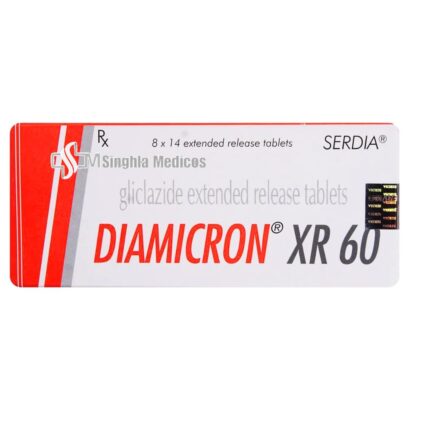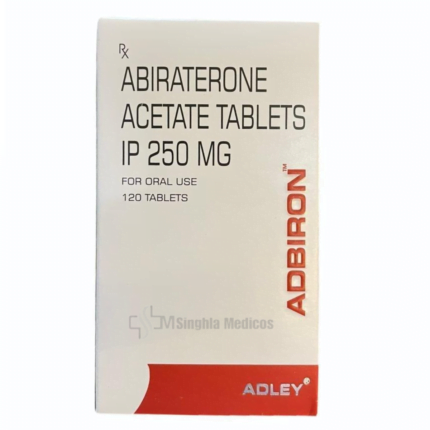

Amantrel Capsule
₹268.93 Original price was: ₹268.93.₹215.14Current price is: ₹215.14.
![]() Prescription Required
Prescription Required
Salt : Amantadine (100mg)
Manufacturer : Cipla Ltd
Packing : 15 Capsule in Strip
Product Introduction
Amantrel Capsule is a medication primarily used for the treatment of Parkinson’s disease and certain viral infections like influenza A. It contains the active ingredient amantadine, which is known for its antiviral and antiparkinsonian properties. The capsule formulation allows for convenient dosing and consistent therapeutic levels in the bloodstream.
Amantrel Capsule works by increasing the levels of dopamine, a neurotransmitter in the brain that is deficient in patients with Parkinson’s disease. Dopamine is crucial for regulating movement and coordination. Additionally, amantadine has antiviral effects that can inhibit the replication of influenza A virus, making it useful in the prophylaxis and treatment of this infection.
Uses of Amantrel Capsule
1. Parkinson’s Disease: Amantrel Capsule is used to treat the symptoms of Parkinson’s disease, such as tremors, stiffness, and slow movement. It is often prescribed alongside other Parkinson’s medications to enhance its effectiveness.
2. Drug-Induced Extrapyramidal Reactions: It is also effective in treating extrapyramidal symptoms caused by certain antipsychotic medications. These symptoms include involuntary muscle movements, restlessness, and rigidity.
3. Influenza A Virus Infections: Amantrel Capsule is used in the prevention and treatment of respiratory infections caused by the influenza A virus. It is particularly beneficial during influenza outbreaks or in individuals at high risk of severe complications from the flu.
Benefits of Amantrel Capsule
1. Improvement in Parkinson’s Symptoms: Amantrel Capsule helps to alleviate motor symptoms associated with Parkinson’s disease, improving the patient’s quality of life. Patients often experience reduced tremors, increased mobility, and better muscle control.
2. Management of Drug-Induced Side Effects: For patients experiencing extrapyramidal symptoms due to antipsychotic medications, Amantrel Capsule can provide significant relief, allowing them to continue their psychiatric treatment without debilitating side effects.
3. Antiviral Protection: Amantrel Capsule offers protection against influenza A virus, reducing the severity and duration of symptoms if taken early in the course of the infection. It also lowers the risk of complications associated with the flu.
4. Convenience and Compliance: The capsule form of amantadine ensures consistent drug delivery, which is important for maintaining therapeutic levels and ensuring patient compliance with the treatment regimen.
Side Effects of Amantrel Capsule
While Amantrel Capsule is generally well-tolerated, it can cause side effects in some individuals. It is important to be aware of these potential adverse effects and to consult a healthcare provider if they occur.
Common Side Effects:
1. Nausea and Vomiting: Some patients may experience gastrointestinal discomfort, including nausea and vomiting. Taking the capsule with food may help mitigate these symptoms.
2. Dizziness and Lightheadedness: Amantrel Capsule can cause dizziness or lightheadedness, especially when getting up from a sitting or lying position. It is advised to rise slowly to reduce the risk of falls.
3. Insomnia: Difficulty sleeping or insomnia is a reported side effect. Taking the medication earlier in the day may help reduce this issue.
4. Dry Mouth: Some individuals may experience dry mouth. Staying hydrated and using sugar-free candies or gum can help alleviate this symptom.
5. Constipation: Amantrel Capsule may cause constipation in some patients. Increasing dietary fiber and fluid intake can help manage this side effect.
Less Common but Serious Side Effects:
1. Mental/Mood Changes: Amantrel Capsule can cause changes in mental status, such as confusion, hallucinations, or mood swings. If these symptoms occur, it is crucial to seek medical attention promptly.
2. Swelling and Shortness of Breath: Some patients may experience swelling of the ankles or feet and shortness of breath. These could be signs of heart failure or other serious conditions and require immediate medical evaluation.
3. Vision Changes: Blurred vision or other vision changes may occur. It is important to report any vision disturbances to a healthcare provider.
4. Skin Reactions: Rarely, amantadine can cause skin reactions, including a condition known as livedo reticularis, which is characterized by a mottled purplish discoloration of the skin. If this occurs, discontinuation of the medication may be necessary.
5. Seizures: Although rare, seizures have been reported in patients taking amantadine. Those with a history of seizure disorders should use this medication with caution and under close medical supervision.
References
-
Aminoff MJ. Pharmacologic Management of Parkinsonism & Other Movement Disorders. In: Katzung BG, Masters SB, Trevor AJ, editors. Basic and Clinical Pharmacology. 11th ed. New Delhi, India: Tata McGraw Hill Education Private Limited; 2009. p. 477.
-
Standaert DG, Roberson ED. Treatment of Central Nervous System Degenerative Disorders. In: Brunton LL, Chabner BA, Knollmann BC, editors. Goodman & Gilman’s: The Pharmacological Basis of Therapeutics. 12th ed. New York, New York: McGraw-Hill Medical; 2011. p. 619.
-
Briggs GG, Freeman RK, editors. A Reference Guide to Fetal and Neonatal Risk: Drugs in Pregnancy and Lactation. 10th ed. Philadelphia, PA: Wolters Kluwer Health; 2015. pp. 48-49.
Disclaimer
Singhla Medicos primary intention is to ensure that its consumers get information that is reviewed by experts, accurate and trustworthy. The information and contents of this website are for informational purposes only. They are not intended to be a substitute for professional medical advice, diagnosis, or treatment. Please seek the advice of your doctor and discuss all your queries related to any disease or medicine. Do not disregard professional medical advice or delay in seeking it because of something you have read on Singhla Medicos. Our mission is to support, not replace, the doctor-patient relationship.
Shipping Policy
We ship across India. Note – this is subject to change as per Company Wishes. Packages will be shipped in 24 working hours. we are closed on Sundays and will reach you in the next 2-4 days post shipping. We give the estimated time of delivery on the shipping page. However, these are indicative and depend on our shipping partner.
Delivery
The delivery times are subject to location, distance, and our logistics partners. We are not liable for any delays in delivery by the courier company/postal authorities but will help you track down a package through our partner courier services.
Your purchases may reach you from various locations in more than one package. But rest assured, you will be charged one delivery fee for the entire order. As soon as your package ships, we will email you your package tracking information.
We are bound in coverage by their reach even though we use some of India’s largest logistics companies for shipping. In case your address is in a location not served by them we would contact you to find an alternative solution to make your products reach you.












Reviews
There are no reviews yet.